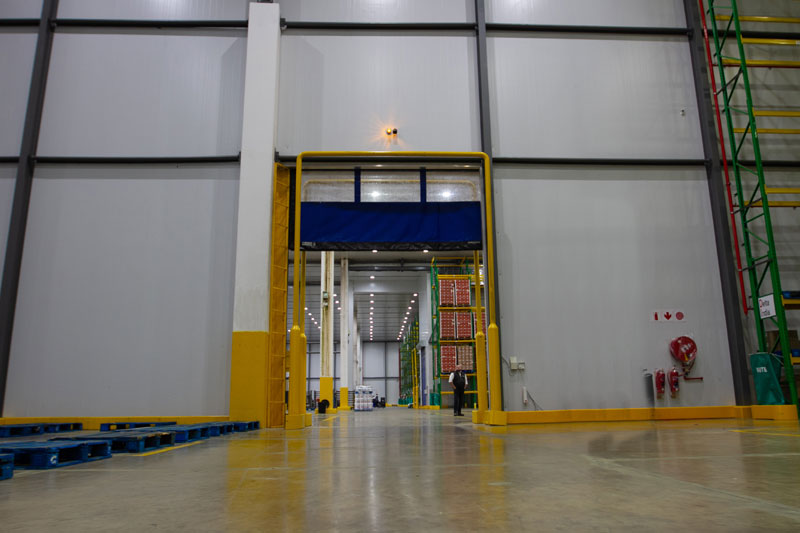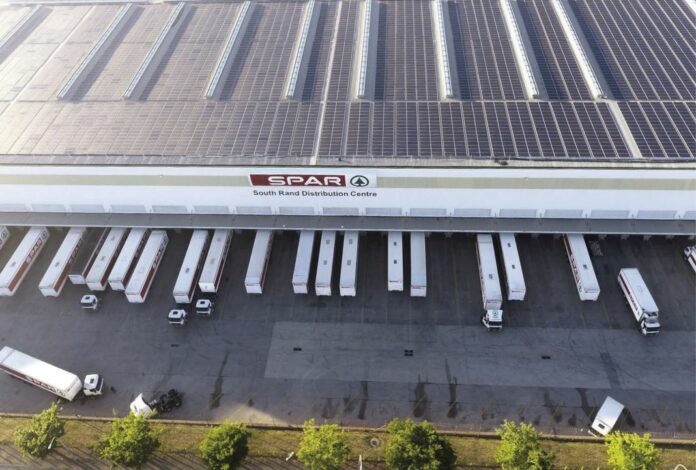Recent extended stage 4 to 6 power outages have once again emphasised the need for broader solutions that will enable businesses not only to endure, but also prosper during the current energy challenges.
The SPAR Group is actively investing in power initiatives to reduce reliance on Eskom and promote sustainable strategies. However, achieving complete independence from the grid will demand continuous innovation to fill the gaps where solar energy cannot.
Significant progress has been made in expanding the solar capabilities at all six of our Distribution Centres (DCs).

However, considering we service SPAR stores nationwide and across borders, our goal of transitioning all six DCs to operate entirely off the grid will require continuous innovation to find ways to supplement our current solar rollout. Solar energy alone cannot sufficiently sustain the uninterrupted, 24-hour operation that is essential for our refrigeration units, storage centres and other critical equipment.
Our South Rand DC, for instance, was the first to move away from its sole reliance on Eskom for electricity. Installation of solar panels at both our perishables and dry-goods warehouses has already resulted in a very significant ongoing reduction in energy usage from Eskom.
This is a clear example of why sustainability is good for South Africa in the long term and just how beneficial the change can be for the sector and for society.
The high cost of lithium batteries and the lack of sufficient wind power around our built-up DC has meant we needed to think out of the box. For instance, we are considering investing in a smaller bank of generators and gas power, rather than the traditional large, standby, diesel generator. We are also investigating alternative wind generation options.
Localisation is among the key approaches that should be adopted to ensure a reliable power supply.
Additionally, we have invested in LED lighting throughout all DCs for a further energy consumption reduction and in our KwaZulu-Natal perishables DC, these LEDs are linked to an intelligent-lighting-management system. This system, which can be monitored and activated remotely, senses movement in each aisle and adjusts the brightness of the light levels accordingly. If no movement is detected, the lights dims significantly. This has resulted in a significant reduction in energy use for lighting.

Biomass potential
Biomass energy generation will also provide increasingly powerful solutions. We see potential scope for biomass to be added to wind and other energy sources as fuel for the generation of electricity.
At The SPAR Group, we firmly believe that more localised power generation presents a realistic avenue for achieving enduring sustainability.
With regard to recycling, we currently collect outer-plastic packaging, cardboard, paper and other recyclable materials from SPAR stores and transport them to our DCs, where they are sorted, weighed and compacted in separate processes. The plastic is recycled and repurposed into various items like bin bags, while the cardboard also undergoes recycling for use in packaging materials.
Through this recycling effort, we reduce the materials sent to landfills, consequently lessening our carbon footprint.
Ensuring that the expansion of the retail industry incorporates sustainable practices is vitally important. Sustainability is not merely beneficial for society and business; it has become indispensable for the retail sector’s future.
Working to discover solutions that alleviate the mounting pressure on the South African power grid and significantly reduce our carbon footprint will remain a key focus of commitment for The SPAR Group. We are championing sustainable behaviour and practices across all facets of our operations and the strides we’re making at our DCs will set a trajectory toward a greener, more sustainable future for all. 
About the SPAR Group
The SPAR Group Ltd is a warehousing and distribution business listed on the Johannesburg Stock Exchange (JSE) in the Food and Drug Retailers sector. The group owns the SPAR retail brand and supports a network of independent retailers who trade under our brand through our distribution centres.
SPAR forms part of SPAR International, which is present in 44 countries and has 240 distribution centres that serve 13-million customers every day. The SPAR Group Ltd, headquartered in Durban, South Africa, is present in nine countries, has 10 distribution centres and serves 3 768 retail members through 14 store formats every day.








